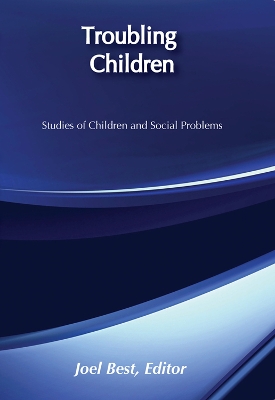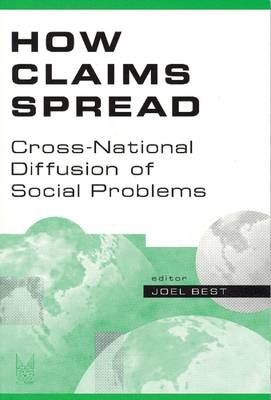Social Problems & Social Issues
2 total works
Increasingly, sociologists have turned their attention to the social problems of children– in particular, of younger children. This collection reflects those recent interest. While most researchers have focused on social problems involving adolescents, this volume offers instead original case studies of problems concerning preadolescent children.The papers that Best has gathered here represent different theoretical and methodological approaches. They report on social issues in Albania, Kenya, and Japan as well as in the United States. The range of social problems they address is a wide one, from broad societal crises to decision-making within families. Topics include the effects of economic and social crises in Africa and Eastern Europe; concerns about crack use and other forms of fetal endangerment; parental decisions about spanking, toy choices, and letting children listen to rock music; schooling in day care and elementary and junior high schools; and children's perceptions of environmental crises.Troubling Children adds a new dimension to courses in social problems. It also offers a different set of perspectives for those concerned with sociology of preadolescent children and their discontents.
Best's anthology examines for the first time how diverse social issues--road rage, the metric system, gun control, and abortion are among those included--migrate across national boundaries, modifying themselves from place to place as a result of different claims, claimsmakers, and policy responses. This unique collection, assembled from new research by an international group of social problems scholars, will fill a gap in undergraduate and graduate level studies in the constructionist analyses of social problems, as well as in political science, public policy, and criminology.
Claims concerning one social problem often influence those about another: claimsmakers borrow rhetoric and tactics from one another. In some cases, experienced claimsmakers join efforts to call attention to other social problems: compelling images (e.g., the threatened child or random violence) link claims about different problems and reactions to one set of claims.
These case studies describe very different processes, ranging from deliberate attempts to disseminate social problem claims to developments that were more inadvertent, from successes in which social problem constructions spread to new countries to failures in which claims were sown, but failed to take root. They are intended to suggest that the diffusion of social problems is neither simple nor automatic.
Joel Best is professor and chair, Department of Sociology and Criminal Justice, University of Delaware. He has served as an editorial advisor for Aldine that has produced fifty titles.

